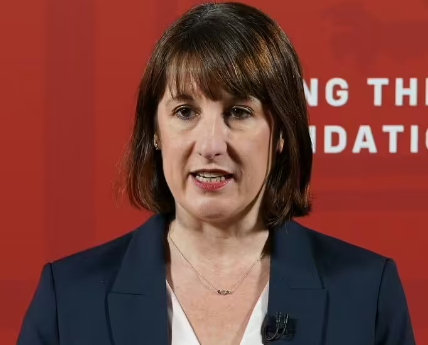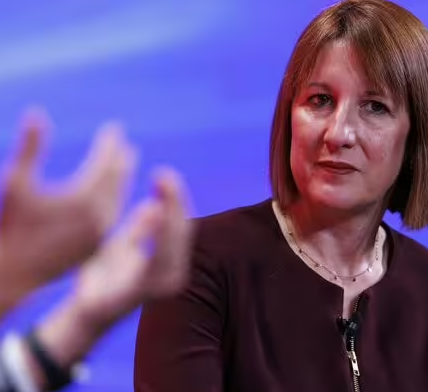Chief Secretary to the Treasury Darren Jones under pressure after Labour insists it has protected ‘working people’ from Budget tax hikes.
Squirming Treasury minister Darren Jones has insisted Labour is not undermining trust in politics by claiming it has protected “working people” in the Budget.
Rachel Reeves hiked taxes by £40billion, with the majority coming through increases in employer National Insurance contributions.
The Chancellor has admitted the rises will hit workers’ pay. Critics have warned that employers might have to consider cutting thousands of staff.
Labour has now sparked fresh fury by insisting it has still protected “working people” from tax hikes.

Wilfred Frost questioned Darren Jones on Sky News (Image: Sky News)

Rachel Reeves delivered her first Budget on Wednesday (Image: AFP via Getty Images)
Sky News host Wilfred Frost blasted: “The Chancellor said wage increases might be slightly less than they otherwise would have been.
“De facto, that is clearly a hit on working people.
“Paul Johnson of the IFS said the continued pretence that these changes will not affect working people risks further undermining trust.”
Mr Jones, the Chief Secretary to the Treasury, fired back: “The Treasury, which sets tax rates, is not increasing the rate of tax on working people.
“That was the promise we made.”
Asked if the Budget hits working people, Mr Jones said: “We completely respect the OBR’s assessment.
“The OBR has predicted that in future years, wage growth may become lower as a consequence of employers having to pay more.”
The OBR is the Office for Budget Responsibility, which provides independent analysis of the UK’s finances.
Challenged again over whether the Budget hits working people, the Chief Secretary to the Treasury finally admitted: “Yes.”
Mr Frost then said: “I come back to this point, if you were trying to avoid that, are not continuing to undermine trust?”
Mr Jones rambled: “No, because the promise in the manifesto was not to increase the rate of tax that employees pay on their payslip.”
The Sky News presenter furiously responded: “That was not the promise in the manifesto. That’s what you’re now making.
“We’ve all read the manifesto.”
Trying to defend Labour’s position, Mr Jones said: “It says that we make a promise to working people.
“That’s people who go to work and get a payslip, that we will not increase income tax or National Insurance.”
But Mr Frost continued: “Hold on, you just said the phrase in the manifesto was ‘working people’. You’ve just acknowledged to me, yes, it hits working people.
“You’re then adding this caveat. Did payslips get mentioned in the manifesto?
“You’ve just quoted it to me.”
But the Treasury minister continued: “We’ve honoured the commitment not to increase the tax rate on working people.
“If we’d have broken that promise, what would it have looked like?”
As the clash continued, Mr Frost asked: “Did the manifesto say we will not put up the tax rate on working people?
“No, it didn’t. It said we will not put up the National Insurance contribution.
“Working people was in the comment before that.”
The Budget increased state spending by almost £70billion per year, a little over 2% of gross domestic product (GDP). It will be funded by increased taxes, which Ms Reeves has admitted will hit workers’ pay and increase borrowing.
Business leaders warned that hundreds of thousands of jobs will be lost while economists said the National Insurance rise was a “tax on working people”.
And market jitters over the Chancellor’s plan for a massive borrowing binge sent the cost of government debt up.
Labour has tried to blame the tax hikes on a £22billion black hole in the public finances.
Tories claimed the Budget amounts an extra £2,237 in tax for the average working household a year.
The analysis showed that over the next five years it would mean a total tax bill of over £9,700.
Choices made by the Chancellor mean the overall tax burden will reach a record 38.3% of gross domestic product (GDP) in 2027-28, the highest since 1948.
The OBR forecasts that by 2026-27, some 76% of the total cost of the National Insurance increase will be passed on through lower real wages – a combination of a squeeze on pay rises and increased prices.
The measure could also lead to the equivalent of about 50,000 average-hour jobs being lost, said the watchdog.


